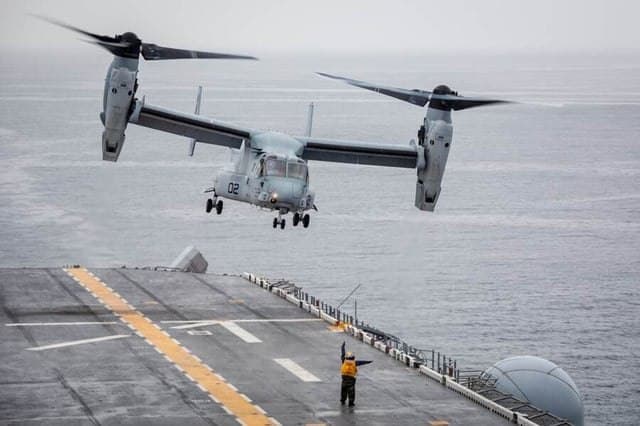U.S. Deploys Air and Naval Forces to Combat Latin American Drug Cartels as Terrorists
The United States has announced the deployment of air and naval forces to the Southern Caribbean Sea to confront drug cartels in Latin America, recently designated as global terrorist organizations. This operation, ordered by President Trump, aims to disrupt the ongoing drug trafficking that poses a significant threat to national security, according to reports from Reuters.
Background & Context
The decision to classify Latin American drug cartels as global terrorist organizations underscores the escalating urgency surrounding drug-related violence and trafficking in the region. The U.S. government has long grappled with the ramifications of drug cartels, which have been linked to violence, corruption, and instability across Latin America. By deploying military assets, the Trump administration seeks not only to enhance security within U.S. borders but also to address the root causes of drug trafficking that affect both American communities and the nations from which these drugs originate.
This military initiative comes amidst a broader international context where countries are increasingly recognizing the interconnectedness of national security and transnational organized crime. The recent designation of these cartels as terrorist entities is a strategic move that aligns with similar actions taken in other global contexts, such as the international community"s response to terrorism and extremism.
Key Developments
As part of the military operation, the U.S. has mobilized a combination of air and naval forces, which will be strategically positioned to monitor and disrupt illicit drug shipments. This deployment marks a significant escalation in the U.S. military"s role in combating drug trafficking, traditionally managed through law enforcement rather than military engagement.
President Trump emphasized the importance of this operation in a statement, asserting that "the fight against drug trafficking is a fight for the safety and security of our nation." The operation is expected to involve coordination with regional allies, enhancing intelligence sharing and operational effectiveness against cartels that have historically evaded law enforcement efforts.
Broader Impact
The implications of this military deployment extend beyond immediate operational goals. Experts warn that a military approach to drug trafficking may have mixed results, highlighting the complex socio-economic factors that fuel the drug trade. Some analysts argue that without addressing underlying issues such as poverty, corruption, and lack of opportunity in affected regions, military interventions may only provide temporary relief.
Historically, similar military operations in Latin America have faced criticism for exacerbating violence and instability in local communities. The U.S. has previously engaged in military actions in Colombia and Mexico, with varying degrees of success. The current approach raises questions about the long-term effectiveness of military solutions to what many consider a public health crisis.
What"s Next
As the operation unfolds, attention will be focused on the immediate outcomes of U.S. military engagement in the Southern Caribbean. Key indicators of success will include the disruption of drug shipments and a measurable decrease in drug-related violence. However, the administration will also need to contend with potential backlash from local populations and governments, which may view U.S. military presence as an infringement on sovereignty.
Moreover, the operation may catalyze further discussions among international partners about collaborative strategies to tackle drug trafficking. The U.S. may seek to engage in diplomatic efforts to ensure that military actions are complemented by development and reform initiatives aimed at addressing the root causes of drug production and trafficking.
As the world watches these developments, the intersection of national security and international drug policy will remain a critical area of focus, potentially shaping U.S. foreign policy in the region for years to come. For more on related coverage, see recent developments in military aid to understand how global military dynamics are shifting.


![[Video] Heavy clashes and gunfire reported in Baghdad, Iraq](/_next/image?url=%2Fapi%2Fimage%2Fthumbnails%2Fthumbnail-1768342239932-848qsh-thumbnail.jpg&w=3840&q=75)




![[Video] Gunfire between Iraqi security forces and Sadr militias in Baghdad](/_next/image?url=%2Fapi%2Fimage%2Fthumbnails%2Fthumbnail-1768343508874-4redb-thumbnail.jpg&w=3840&q=75)
